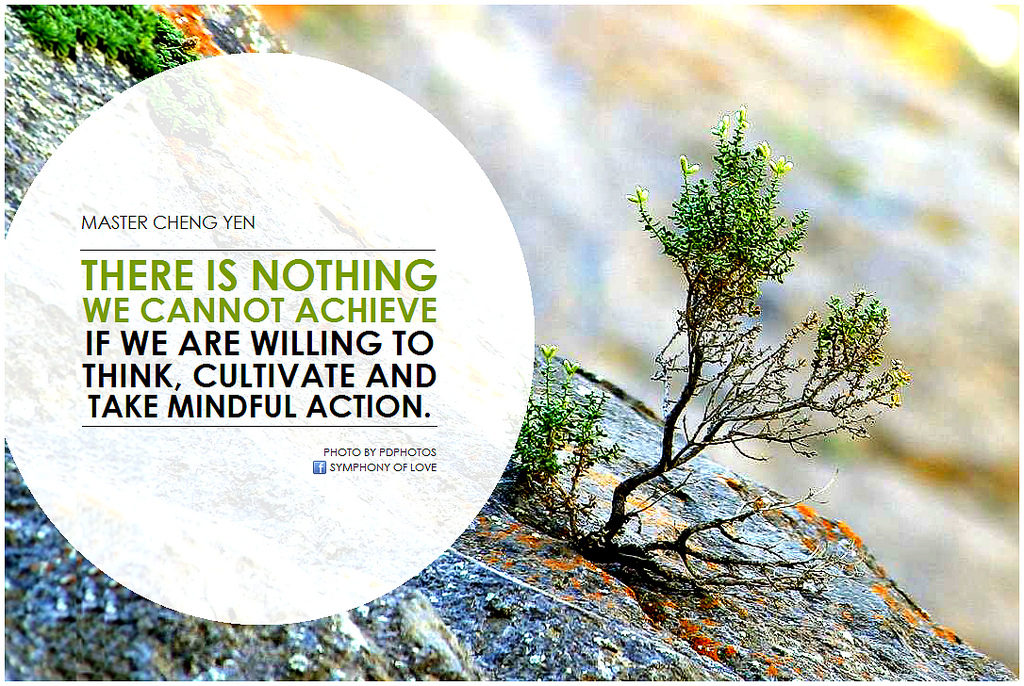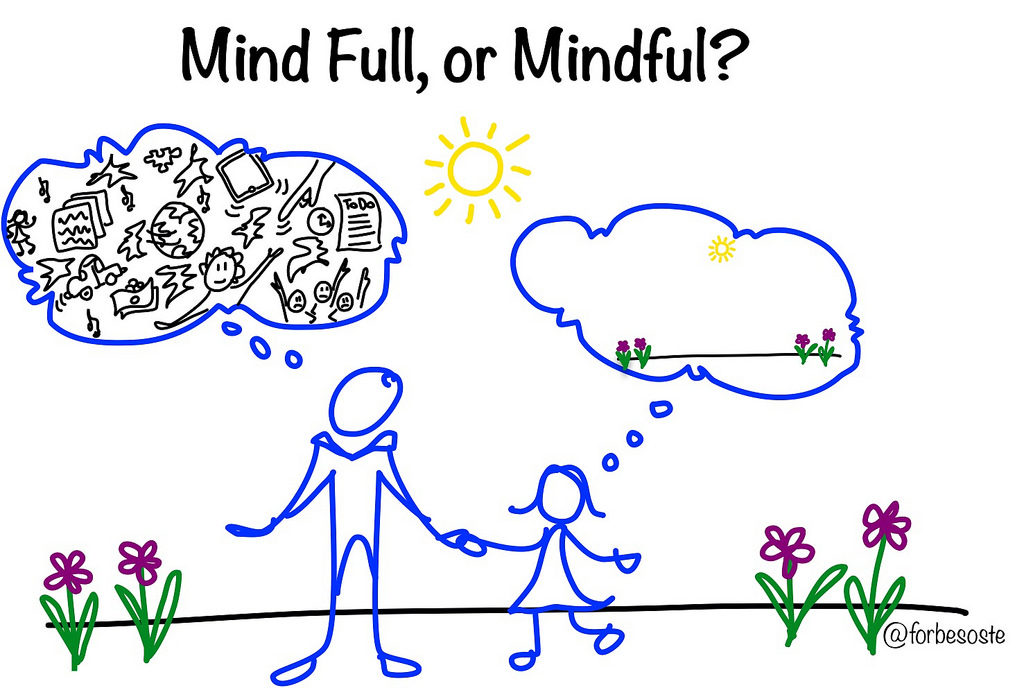by Louise Brace
As some of the world’s top organizations put the importance of employee health and happiness first, the question of how to create a more stress-free workplace environment is a hot topic. At last year’s World Economic Forum, the practice of mindfulness was one of the most widely discussed topics on the agenda, with several sessions dedicated to the science and benefits of mindfulness.
Mindfulness can help reduce stress, create a more engaged workforce and in turn lead to higher performance amongst employees and teams, and the effects are real and measurable. Companies such as Google, the Harvard Business School, Intel and the UK’s National Health System (NHS) have all introduced a mindfulness at work program to benefit employee wellbeing.
With everybody doing it, it’s no surprise that a Mindfulness Business Conference was launched, to bring together a diverse group of leaders and organizations to share their experiences of mindfulness practices in the workplace.
This year’s Mindful Business Conference takes place in New York on 9-10th May and I was was lucky enough to chat with Elizabeth Russell and Erik Randolph, from the conference organization team, about some of the real benefits to introducing Mindfulness principles in the workplace.
Tell us about the The Mindfulness Business Conference
Here are the top three things we want to drive home about this conference:
- Corporate America is on the whole skeptical about Mindfulness. It sounds a bit out there. We are changing 1. the conversation, and 2. who’s having it: This is a conference for business leaders by business leaders – it is the corporate tribe that others within the corporate world will absolutely be able to relate to.
- Conference speakers have been hand-picked to represent a wide variety of industries and organization types – and not necessarily industries that you expect will adopt a Mindful Business Practice. Oil & Gas, Chemicals, Automotive, Consumer Products, Security, Military, Government.
- People want to be inspired at the event, but then they also want a roadmap to get started within their organization. Our speakers will leave attendees with both the inspiration/case study and then a detailed ‘how to’ roadmap as a take home.
Where does mindfulness fit into today’s work environment?
Great question! This is exactly what we are hoping to discuss at our conference this year! We believe that mindfulness has a place at both the individual and organizational level, and, due to the movement of mindfulness toward a more secular base, have not defined it in a way that imposes a specific definition or ideology.
Our speakers and delegates all have success stories related to bringing mindfulness into their organizations, some at a very high-level, with the CEO being a main driver, and some with it being a function of HR.

Can mindfulness set companies apart, from non-practicing organisations?
This is really up for discussion and is of great interest to us and our attendees. Many mindfulness studies are geared toward the value of mindfulness in improving stress or health amongst individuals, and all clearly suggest that mindfulness works to achieve this. But many companies are still looking for qualitative and quantitative answers as to how this will impact the bottom-line. How will this reduce healthcare costs? How will it improve the consumer level – will it lead to happier customers?
As employees become less stressed, as workplaces become more creative, and as teams lose the us-vs.-them mentality, the hope is that they will do better work, miss far fewer days due to illness or personal need, and therefore be more effective employees. Companies will start to be able to measure this better only as they take on mindfulness practices, or once the companies that have done it have more measurable data.
Does it have to come from top down? What is mindful leadership?
This is what we are exploring with our conference and I would say that our speakers have their own answers to this question. As an example, Mark Bertolini, CEO of Aetna, had a severe skiing accident in 2004 that left him quite disabled and dealing with a great deal of pain. In an effort to manage, he turned to alternative healing practices, including mindfulness, and in seeing his own success, realized that he needed to bring this to the people in his organization.
Read on about Mindful Leadership
In contrast, Debbie Jeremiah of GE, was an individual within the finance department who brought mindfulness to her co-workers through lunch-and-learn sessions. The success of these caught the attention of HR, who have now hired Debbie to lead training in mindfulness, making mindfulness there an aspect of training within HR.
Does talent seek out companies using mindfulness techniques?
Anecdotally, we would say yes – that the hope of companies implementing mindfulness strategies would be more enticing to great talent than companies who don’t. In our mindfulness in business research report, we offer some reasoning as to why we believe that talent acquisition is a viable reason to consider mindfulness. However, without having studied the workforce itself, we can’t assume empirically that this is true. It’s a really exciting area to study and discuss, especially as millennials enter the workforce and demand more of their employers, as is commonly assumed will/has occurred.

Can mindfulness practice help reduce stress in the office?
There are 100s of articles pointing to the use of mindfulness to reduce stress and improve health, and a lot of assumptions have been drawn off of that. I will point you to a study in the Journal of Management that is very new (2015-2016), called “Contemplating Mindfulness at Work: An Integrative Review”. This study basically goes over the various other studies that have been done on mindfulness’ impact on body functions – emotion, cognition, attention, and so on – and parallels these to studies done on workplace populations in performance, relationships, and well-being.
The evidence shows mindfulness having a significant impact on employee well-being. However, it isn’t able to fairly address which mechanisms specifically influence this; workplaces are so varied and each has such different capacities that it’s difficult to suggest any sort of uniformity.
What type of research has been done on the effectiveness of mindfulness practices in the workplace?
Many! It’s an interesting mix – some empirical and very focused on things like reducing stress in cancer survivors; some, like the one I previously mentioned from the Journal of Management, takes a wider approach by addressing earlier studies and using them to make broader assumptions.
Mindfulness is supposed to improve creativity and innovation in the workplace, can it influence company culture to achieve this?
This is something we hope to discuss in much more detail at the conference. We also address this a little bit in our research paper, but our answer would be two-fold:
Our speaker Jason Voss (Content Director of the CFA Institute) touches on this a bit in his discussion on Meditation. Mindfulness allows creativity to flow by breaking down the barriers that prevent creativity and clarity of thinking, like stress. When someone is unable to cope with stress, it is likely that thinking about that will be taking up a portion of the brain and the worker will not be focused on creative thinking.
Where stress and an “us-vs.-them” mentality is reduced, people will be better able to work together, more willing to speak up when an idea hits them instead of keeping it in for fear of ridicule.
What types of Mindfulness practices can be introduced to workplace?
It’s really important to note that we are not teachers or practitioners of mindfulness, nor do we promote any one practice as “the” practice for use in business. In all though, this is also a huge point of our conference – to allow our speakers to tell us what’s worked for them and to be able to discuss ideas and implementation strategies.
Our speakers have some really varied practices themselves and will be discussing what they are and how they have brought them into the workplace:
Jason Voss (Content Director, CFA Institute) will be discussing four different types of meditation and how each can be used for different reasons. He would also note that one is very natural and can be found in the things that give us euphoria – a massage for one person, maybe cleaning for another. Lindsay Van Driel of Intel, as another meditation example, runs a program that teaches meditation in a structured course.
Debbie Jeremiah (Mindful Leader Program Manager at GE) will be discussing her program, which is based on brain science. The point is to teach people to understand what their brain is doing, which Debbie believes will bring about a more natural mindfulness, where people can understand why they lose focus, or get emotional, and can adapt accordingly.
Highlights on the agenda include:
Congressman Tim Ryan – runs a mindfulness and meditation group on Capitol Hill and is bringing with him ideas on how these can be applied more widely in education, healthcare, and veteran’s services
Anchorman Dan Harris – had a pivotal, epiphany moment that brought him to mindfulness – an anxiety attack on air; his work at the conference will discuss his experience and how he went from skeptic to guru
Howard Behar – former president of Starbucks, he believes that paying attention to people should be done not just a strategic element, but is part of being good to each other and by proxy the customers; he also discusses how leaders and values set the stage for bringing mindfulness into an organization
Julia Freeman – runs the Be At My Best program (BAMB), an internal training on awareness for Mondelez International. This helps people to address feelings, emotions, experiences, and how they relate to others, and recognize their importance; she brings to the table an innate understanding of building leaders
Major Gen. Walt Piatt – is working on bringing mindfulness concepts to the military to help improve soldier’s handling of stress from his position in the Pentagon; his work includes informing some of the top echelons of the Army and opening up doors for research by being a strong advocate
Stephan le Blanc – has moved through several industrial positions, focusing on teamwork, consistently seeing significant improvements in engagement, satisfaction, and performance. He believes that companies can increase key performance indicators by 20%, 30%, compared to the typical 5%, through transformational leadership.
The Mindful Business Conference takes place at the Convene Event Centre, New York, from May 9-10th 2016. If you can’t attend, we highly recommend signing up for the Mindfulness in Business webcast series, which features some of the key speakers at this year’s event.
Image credits: Master Cheng Yen quote by BK, Mind Full vs. Mindful by Heidi Forbes Oste


I am interested to read more research on mindfulness in business but the link in your article does not work. Could you send me the correct one please? Thank you. Agnieszka